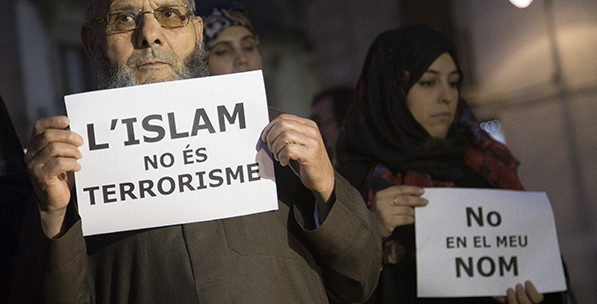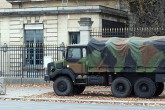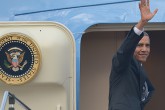On Friday night, DAESH perpetrated a terrorist attack in Paris to target French citizens in social venues: A stadium, a concert hall, restaurants and the streets. For many Turks, the assault closely resembled the bombing of an Ankara rally on Oct. 10, 2015. Geared toward depriving ordinary people from their sense of security, the simultaneous attacks were so frightening that hardly anyone could ask why the terrorists went after civilians. At this point, attributing a crime to DAESH speaks volumes about the degree of its magnitude.
In January 2015, the Charlie Hebdo attack had established that the Syrian hell would set on fire not only neighboring countries but also the European continent. Less than a year later, all Western capitals face the same threat.
Terrorist attacks are symbolic acts that fit into a broader strategy. On Friday, DAESH effectively told all governments currently fighting terrorism in Syria and Iraq to stay away. “If you come after us, DAESH operatives around the world will hit you where it hurts,” one could hear the perpetrators saying. It was, furthermore, noteworthy that the assault took place just hours before the G20’s 10th annual summit kicked off in Antalya, Turkey with a focus on counterterrorism – as if to challenge the world’s most powerful people. Suffering from setbacks and anticipating an even stronger response from the international community, DAESH apparently wanted to showcase its muscles by activating one of many sleeper cells spread across the world. They didn’t seem to mind that Friday’s terrorist attacks would only encourage further action. Nor did DAESH care that the French government would unleash hell on Raqqa, the organization’s self-proclaimed capital. Apparently, they weren’t too concerned about their name appearing in the G20 communiqué either.
The attacks had vast symbolic value: No place and nobody is safe anymore. In the early days, DAESH made the headlines by beheading Western journalists and Shiite prisoners. As a matter fact, DAESH took the glorification of violence to the next level by targeting public squares and ordinary people in Ankara and Paris. The organization, to be sure, doesn’t exploit violence as a means to spread fear alone. Graphic violence also helps DAESH send messages across a global network and recruit even more radical militants. If you were wondering how long the world will have to live in fear, the answer is clear: Until the international community develops a coordinated response to the DAESH challenge and creates a road map for Syria’s future inclusive of Sunni Arabs, the terrorist message will have an audience.
Building walls around Europe isn’t the answer. Nor will the West make a positive contribution by targeting refugees and Muslim communities.
The Paris attacks turned counterterrorism into the number one item on the G20 summit’s agenda. U.S. President Barack Obama’s bilateral meetings with Turkey’s Recep Tayyip Erdoğan and his Russian counterpart, Vladimir Putin, likewise focused on DAESH. Although the international community is determined to combat terrorism, world leaders keep repeating a fundamental mistake by failing to promote an alternative for the organization’s social base in Syria and Iraq. Even after the Paris attacks, Iranian-backed Shiite militias, assisted by the Russian air forces, have been fighting against the moderate rebels in Aleppo.
At this time, all stakeholders are planning for the post-DAESH period, but the effort to include Bashar Assad in the transition government lies at the heart of the problem: Believing that Assad’s removal from power will further destabilize Syria, the international community effectively pushes Sunni Arabs toward DAESH. Ironically, this very move further empowers DAESH and allows Assad to stick around. Before we do anything, we need to address this contradiction.
[Daily Sabah, November 21, 2015]
In this article
- Foreign Policy
- Opinion
- 2015
- Aleppo
- Bashar Al Assad
- Counterterrorism
- DAESH
- Daily Sabah
- Europe
- G20
- Iraq
- Islamic Republic of Iran
- Middle East
- Muslim
- Recep Tayyip Erdoğan
- Russia
- Sunni
- Syria
- Syrian Civil War
- Syrian Conflict
- Syrian Crisis
- Terrorism
- The President of the Republic of Türkiye
- Turkish President
- United States (US)
- US President
- Western World



